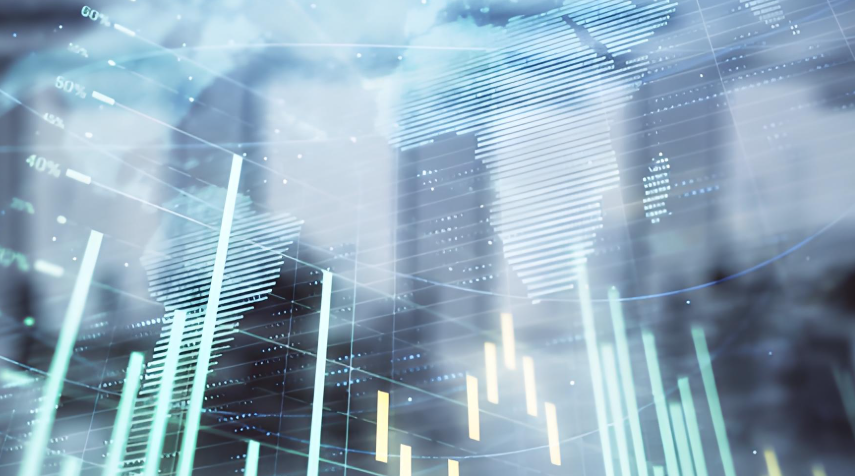Rethinking Inflation: New Perspectives Emerge
Advertisements
The definition of inflation in the United States is undergoing a profound transformation. Traditionally, inflation was understood simply as a general increase in price levels. However, in recent years, the public's comprehension of the term has shifted towards an ongoing state of elevated prices. This evolution signifies more than just a change in language; it reflects a significant alteration in how people perceive economic conditions and how economic dialogue takes place within society.
To understand this change, it is crucial to look at the classical definition of inflation juxtaposed with the recent shifts in its interpretation. Inflation is often defined in economic terms as the sustained rise in the general price level over a period, resulting in a decline in the purchasing power of money. Recent observations indicate a shift in its everyday usage from discussing fluctuating prices to referring to a continuous high price milieu. This transition from an academic definition to common parlance alters not only how economic data is understood but also influences public sentiments towards economic policies.
Furthermore, the shift in public perception of inflation and its causes is noteworthy. Despite a reported decline in official inflation rates in recent years, public concern regarding price levels has not diminished proportionally. This phenomenon arises, in part, from the fact that people's understanding of inflation has transitioned from focusing on the percentage of price fluctuations to maintaining a persistent vigilance regarding high prices. Influencing factors include media portrayal, political discussions surrounding economic issues, and varying personal experiences and expectations. Events like the economic upheaval during the pandemic have intensified public sensitivity to price changes, accentuating the disconnect between reality and perception.
This ongoing transformation presents challenges for policymakers as they navigate through a complex landscape of public communication regarding economic policies. On one hand, official inflation rates are derived from complex statistical models and data analytics, which often seem detached from the daily struggles and experiences of citizens who feel the effects of price changes in their essential expenditures. Policymakers have thus taken on the role of translators, tasked with clarifying these disparities using accessible language and providing explanations regarding the origins of various metrics, such as the elements involved, their weightings, and coverage ranges. This effort serves to alleviate public misconceptions and prevent unnecessary societal anxiety.
Simultaneously, the public's increasing clamor for price stability forces policymakers to reassess and adapt their strategies. Traditional monetary and fiscal policy tools can no longer operate in isolation; they must intricately align with social expectations and contemporary contexts. For instance, as consumers increasingly prioritize quality in their purchases, their sensitivity to the prices of high-quality goods deepens, requiring targeted policy responses. Policymakers need to be not only well-versed in cold, hard economic data but also attuned to the vibrant realities that underpin those statistics.

Looking to the future, the trajectory of inflation is likely to involve continuous evolution both economically and socially. As the global economic landscape undergoes significant reconfiguration, with technological advancements driving transformative changes in industries and evolving consumer ideologies, the impacts of inflation grow increasingly complex and unpredictable. In this environment, it is imperative for policymakers to eschew outdated theories and embrace innovative approaches, allowing them to swiftly respond to inflationary trends while crafting policies that address these immediate concerns effectively. Economists, too, bear the responsibility of grounding their theories in the realities of modern economic practices, ensuring that theoretical frameworks remain relevant amid constant changes.
Moreover, improving the public's economic literacy becomes critical for stabilizing the broader economic environment. When citizens understand how to interpret economic data accurately and grasp the implications of policy decisions, they can maintain a rational perspective amid price fluctuations and employment variations, ultimately avoiding panic-driven decisions that can destabilize the economy. At the core, it is through thoughtful policy responses and transparent communication with the public that effective economic strategies can emerge, aligning professional insights with the everyday needs and expectations of the populace.
The new understanding of inflation acts as a mirror reflecting the significant transformations occurring in the realm of economic consciousness within society. The traditional perceptions are proving inadequate in addressing the complexities of today's shifting economic terrain, demanding that policymakers find themselves at a new crossroads. They must account for the diverse experiences of individuals regarding inflation, tailoring policies to enhance precision. Additionally, in conveying the rationale behind these policies, it is essential that they do so in a clear, forthright manner that enhances transparency and promotes widespread economic education. Striking a balance between ensuring stable economic operations and effectively guiding public understanding of these conditions has become a critical challenge that demands urgent attention.
Leave a Reply